October 2024 Newsletter
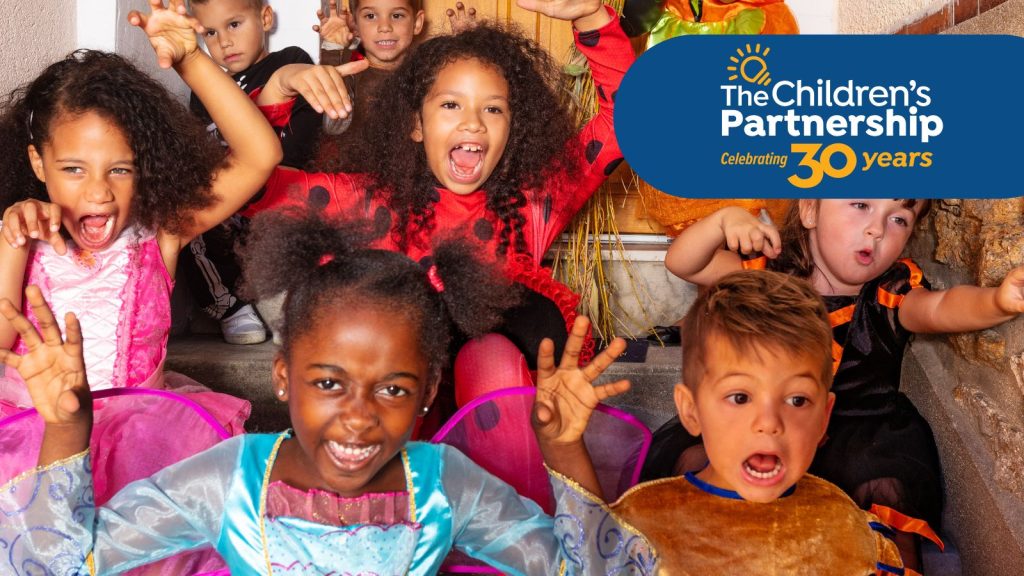
The Children’s Partnership Concludes 30th Anniversary Speaker Series with Community Celebration
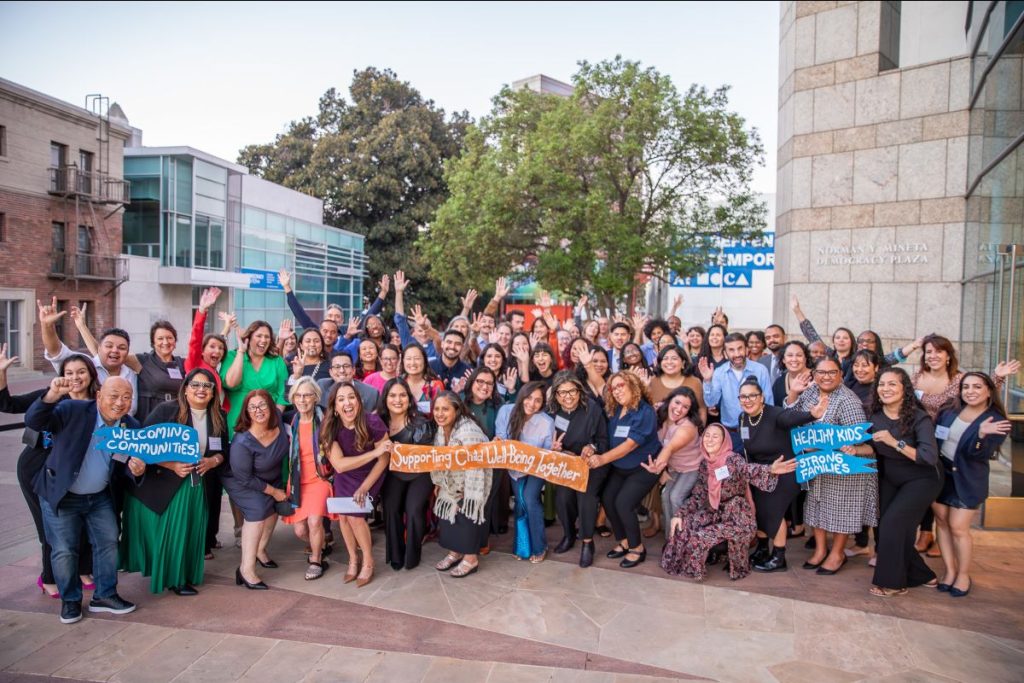
On Oct. 22, 2024, The Children’s Partnership held the culminating event of its year-long 30th anniversary celebration, For Our Children’s Future: 30th Anniversary Speaker Series, at the Japanese American National Museum in Downtown Los Angeles.
With live jazz music from The Harmony Project and food and beverage from The Aisha Life, guests – past and present partners, colleagues, staff, board members, friends and family – gathered to commemorate TCP’s past three decades of advocacy for children’s health and recommit to partnership in the work ahead.
The centerpiece of the night was the discussion with our panelists: Shimica Gaskins, president and CEO of GRACE and End Child Poverty CA; Priscilla Huang, executive director of the Center for Asian Americans in Action; and Virginia Hedrick, executive director of the California Consortium for Urban Indian Health. TCP President Mayra E. Alvarez moderated the talk, which focused on partnership and the value of culture and community leadership in addressing challenges to protecting children’s health and well-being.
Read on to see what our panelists had to say!

Voter Guide for Children’s Health Equity
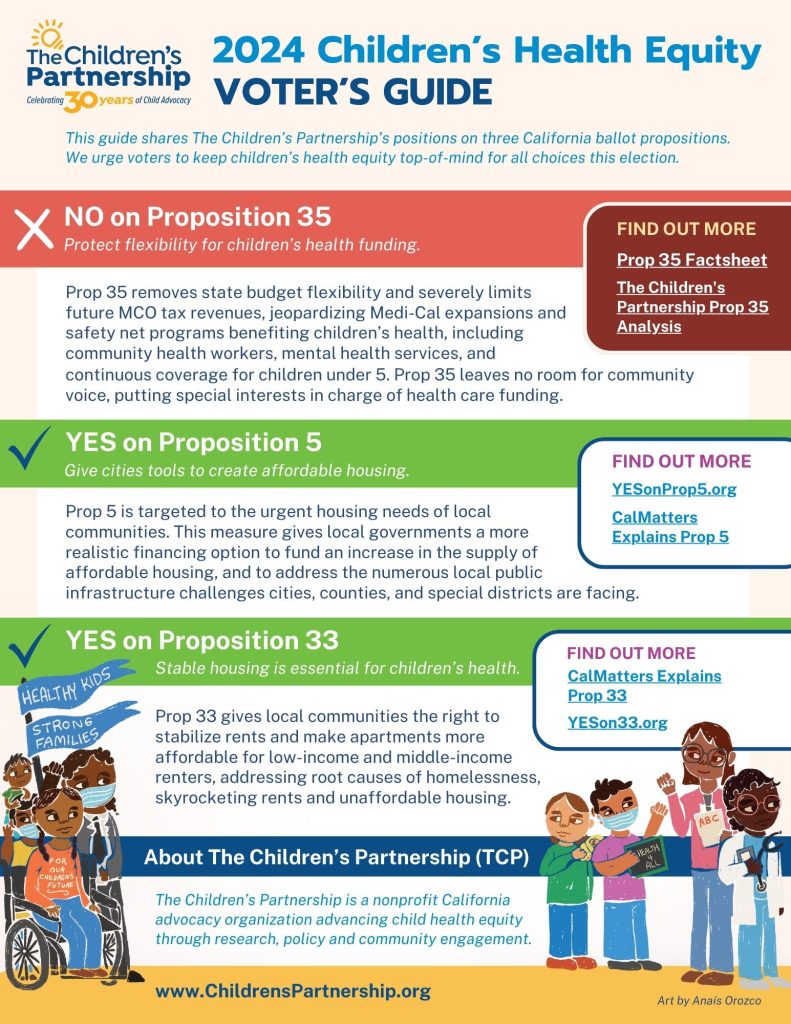
Election Day is fast approaching on November 5, and The Children’s Partnership wants to ensure you’re informed about some of the statewide ballot propositions that could have significant impacts on our children’s health and well-being.
However you choose to vote, we urge you to keep children’s health equity top of mind. Here are TCP’s recommendations:
🚫NO on Proposition 35
Prop 35 removes state budget flexibility and severely limits future MCO tax revenues, jeopardizing Medi-Cal expansions and safety net programs benefiting children’s health, including community health workers, mental health services, and continuous coverage for children under 5. Prop 35 leaves no room for community voice, putting special interests in charge of health care funding.
We are proud to stand with the California Pan-Ethnic Health Network, Disability Rights California, the League of Women Voters of California and more. Visit our NEW website at noprop35ca.com to get the facts, read why most of the major newspapers in the state agree with us, (including the Los Angeles Times, The Mercury News and The San Diego Union-Tribune) and find fact sheets to share with others.
✅ YES on Proposition 33
Prop 33 gives local communities the right to stabilize rents and make apartments more affordable for low-income and middle-income renters, addressing root causes of homelessness, skyrocketing rents and unaffordable housing.
✅ YES on Proposition 33
Prop 5 is targeted to the urgent housing needs of local communities. This measure gives local governments a more realistic financing option to fund an increase in the supply of affordable housing, and to address the numerous local public infrastructure challenges cities, counties and special districts are facing.

TCP Joins Protecting Immigrant Families Coalition in Release of New Report: California Counties with Larger Immigrant Communities Hit Harder with Medi-Cal Enrollment Losses of 317,000 People
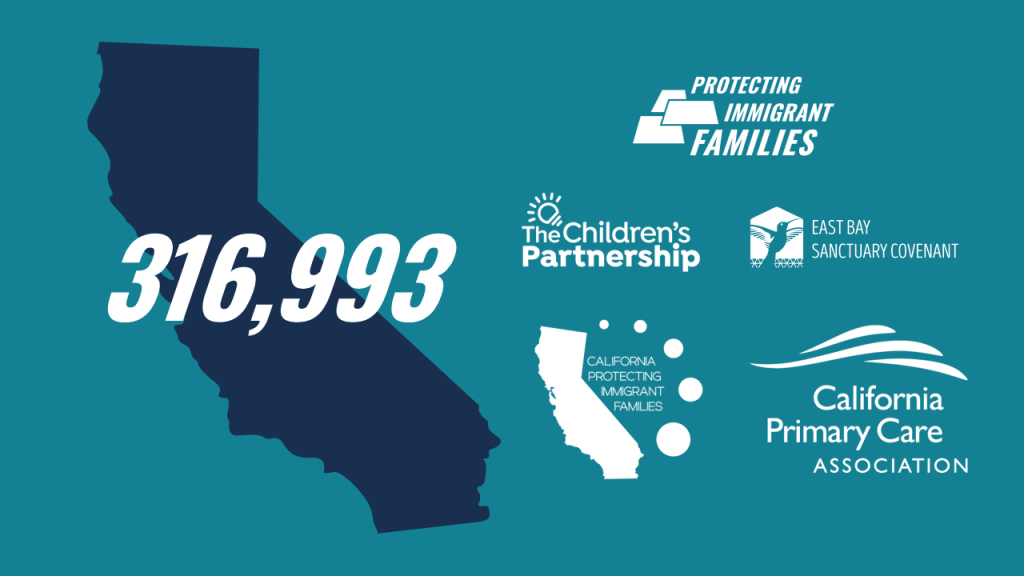
A new analysis released by the Protecting Immigrant Families coalition (PIF) finds that state Medicaid eligibility policies and practices resulted in 316,993 people in California counties with larger immigrant shares of county population losing Medi-Cal, compared to counties with a lower share of immigrants. The analysis, completed for PIF by the non-profit behavioral science research firm ideas42, focuses on declines in Medicaid enrollment as states worked to “unwind” Medicaid’s pandemic-era continuous coverage requirement.
“Nearly half of California’s 9 million children are part of immigrant families, making Medi-Cal disenrollments that lead to gaps in coverage even more concerning,” said Mayra E. Alvarez, president of The Children’s Partnership. “As we’ve heard from many families around the state over the past year, the Medi-Cal unwinding process has been problematic, especially for people seeking help with renewals in languages other than English. Keeping coverage requires a program that works for all who depend on it, and we can do more to strengthen Medi-Cal for all families.”
New DACA ACA Eligibility For Covered CA Starts November 1
A recent federal rule change will allow recipients of DACA to sign up for an ACA health plan through Covered California starting November 1, 2024. Eligible DACA recipients can receive financial help if they qualify.
From November 1 to December 31, 2024, DACA recipients can sign up for a health plan during a special enrollment period. Covered California has set up this special enrollment period to help DACA recipients get health insurance for the rest of the 2024 plan year. If you sign up in November, your plan could start as soon as December 1, 2024.
This special enrollment period overlaps with Covered California’s regular open enrollment period, meaning DACA recipients can also sign up for health insurance for 2025 during this time.
DACA ACA eligibility fact sheets: English and Spanish.
Read more on the Covered California website.
National Immigration Law Center Annual DACA Survey
(Deadline Oct. 31)
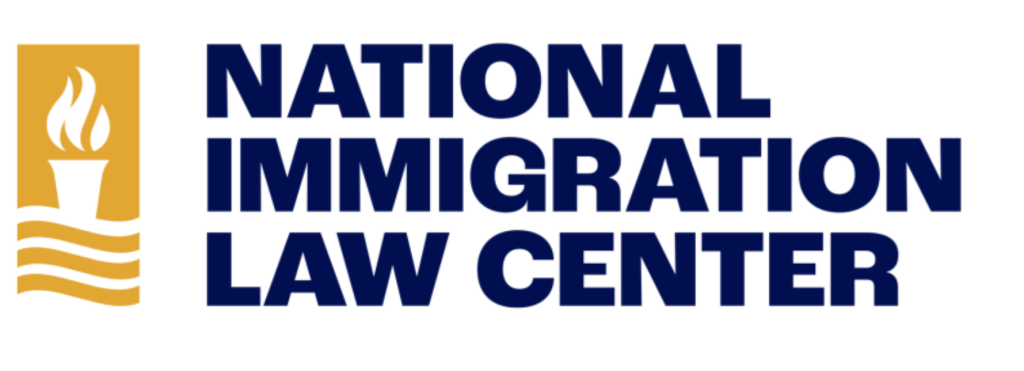
As the National Immigrant Law Center monitors for new developments on DACA in the courts, they are conducting an anonymous survey for DACA-eligible people (regardless of whether they have DACA) to voice the impact the program has had on our lives.
The survey only takes a few minutes. The deadline to take the survey is October 31. The data from the survey will help in continued efforts to strengthen DACA and win a pathway to citizenship for all.
Important: At every point in this process, your personal information will be completely protected.
Any information you submit through the survey will be entirely confidential. The resulting aggregate survey data will be accessible only by the survey research team of Professor Tom Wong, NILC, United We Dream, and the Center for American Progress. Published findings will not contain any personally identifiable information.

8 California High Schools Selected for New TCP Pilot Program to Support Youth Mental Health
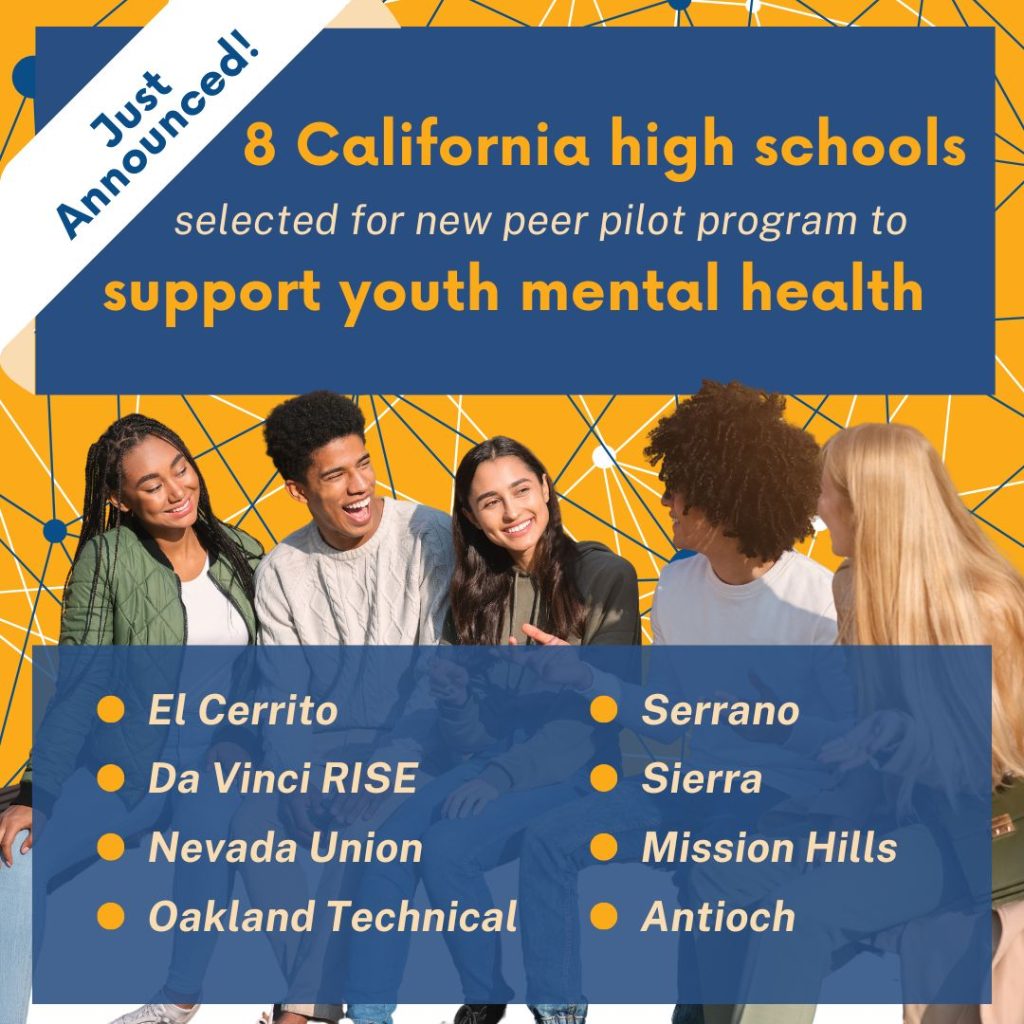
As part of a historic $8 million investment in a youth-driven approach to mental health and well-being, in partnership with the California Department of Health Care Services, The Children’s Partnership has selected eight California public high schools that will serve as partners and grantees for the Peer-to-Peer Youth Mental Health High School Pilot Demonstration.
The project is a direct recommendation from TCP’s youth policy council, The Hope, Healing and Health Collective (H3C), made up of 15 youth leaders from across the nation who worked together to identify strategies to improve the mental health of marginalized youth of color and their communities.
Peer support programs in schools are a multi-benefit solution to the youth mental health crisis that addresses an over-reliance on clinical models and focuses on prevention. By sharing their lived experiences and practical guidance, peer supporters offer culturally responsive, affirming care that often does not exist within traditional clinical models.
Learn more about peer-to-peer youth mental health support and the eight selected high schools at the link below.
SB 1289, Requiring Medi-Cal County Call System Data Collection, Signed by Governor

The Children’s Partnership is thrilled that in late September, Gov. Newsom signed SB 1289 into law! This bill, authored by Senator Richard D. Roth, was a top legislative priority for TCP and will help to address long wait times that many Medi-Cal recipients face when seeking help to renew their coverage.
The bill, co-sponsored by our partner Western Center on Law & Poverty, provides an important step toward accountability and making Medi-Cal work better for families by requiring the California Department of Health Care Services to collect and report county call system data.
TCP recently released seminal research, conducted by WestGroup Research, showing that average Medi-Cal call wait times were about an hour across the state, with several large counties experiencing wait times at double that length, as well as a huge dropped-call rate due to high volume. Learn more by downloading the survey report and fact sheet here.
We are grateful to Gov. Newsom, Sen. Roth, and all the community members, advocates and legislators who supported this important legislation!
California Reparations Webinar Series recap
The Whole Child Equity Partnership recently hosted a two-part webinar series, “Reparations as an Early Childhood Issue.”
California Reparations: How Does Prenatal to Age 3 Fit In?
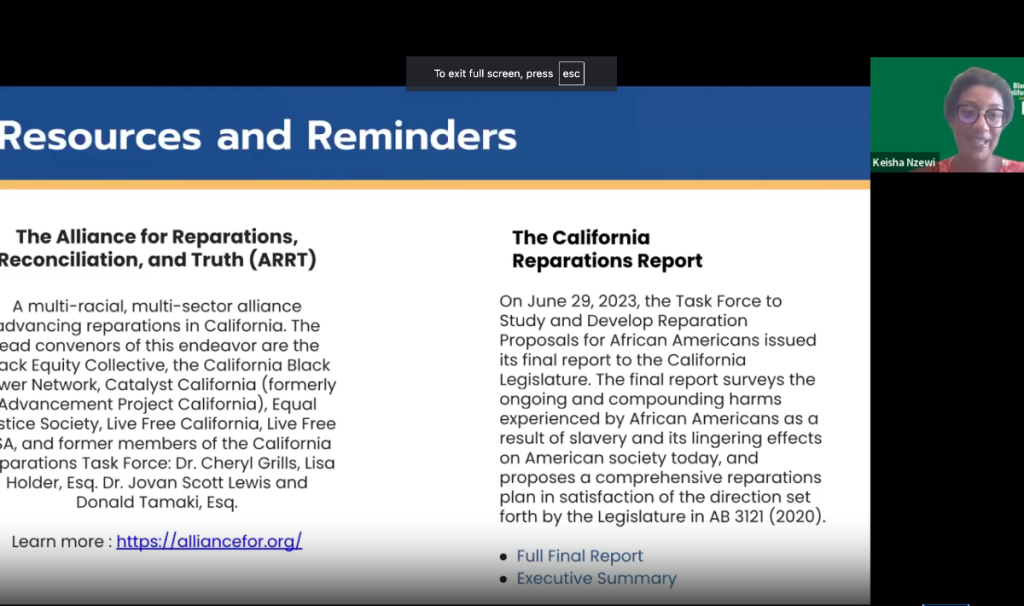
In part one, “California Reparations: How Does Prenatal to Age 3 Fit In?,” Lisa Holder, president of the Equal Justice Society, and Dr. John Dobard, vice president of policy and programs at Catalyst California, discussed the historical contexts of racial injustice, systemic racism, past reparations efforts and strategies, as well as provided current context setting with the 2023 Reparations Task Force’s findings and report and efforts to build upon.
California Reparations: A Call to Action for Families in Prenatal-to-3 Stages
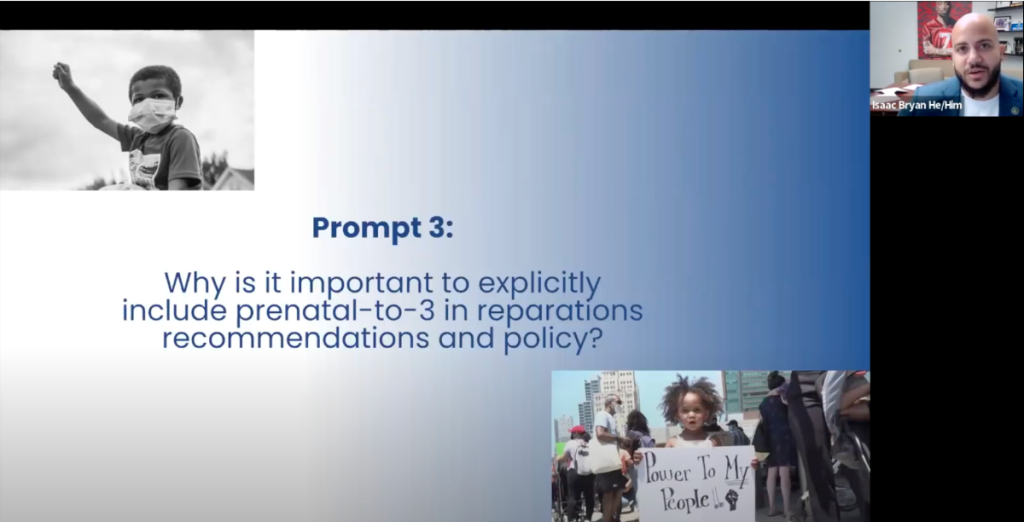
In part two, “California Reparations: A Call to Action for Families in Prenatal-to-3 Stages,” Assemblymember Isaac G. Bryan (D-Los Angeles) shared the California Reparations Task Force’s findings and recommendations, uplifting the absence of Black babies in the recommendations to explain the importance for their inclusion in reparations discussions and plans moving forward. Bryan also discussed the current California legislative and budget landscape and how they will impact the progress and success of reparations this upcoming year. We also discussed the important role of community members, advocates and legislators in accomplishing these goals.
TCP attends 2024 Vital Village Summit – A Commitment to Partnership
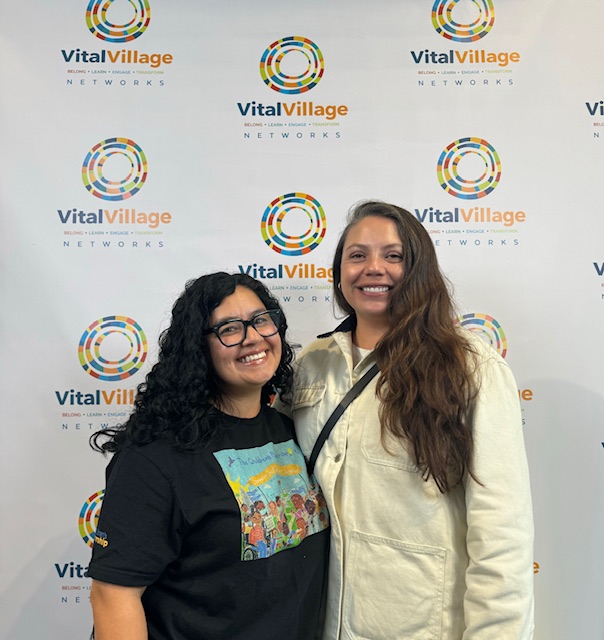
Eva Rivera, left, TCP advocacy director of early childhood development, and Liza Davis, TCP director of community engagement, attended the Vital Village Summit Oct. 1-2 in Boston. They joined leaders, groundbreakers and path-builders from across the country who are dedicated to fighting for justice, cultivating shared spaces of healing, and designing new systems grounded in the joy of children, families and communities across the country.
TCP, Partners Inform Community Health Workers About Prop 35
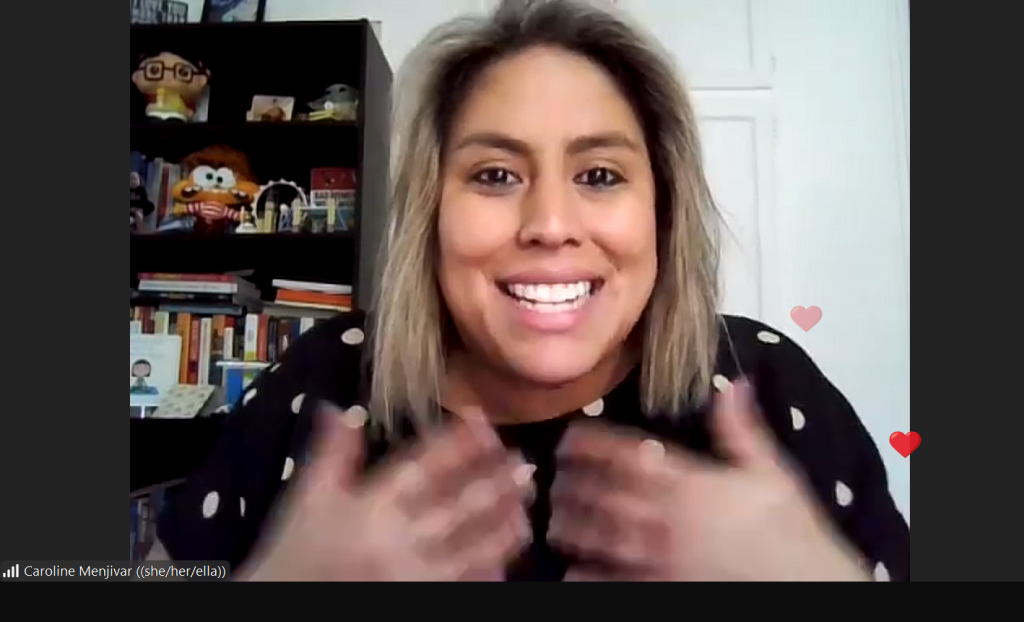
TCP partnered with Visión y Compromiso and the California Pan-Ethnic Health Network to inform community health workers, promotoras and representatives about the impacts of Prop 35. Sen. Caroline Menjivar joined the event to celebrate this year’s CHW rate increase budget win and discussed the important consequences Prop 35 would have on the CHW/P/R workforce. We also shared resources with CHW/P/Rs so that they stay informed and spread the word!
For more information on the impact of Prop 35 on the CHW/P/R workforce, visit https://www.noprop35ca.com/. For general CHW/P/R resources and information, go to http://bit.ly/CHWPR.
TCP President Mayra E. Alvarez Speaks at LCHC Summit
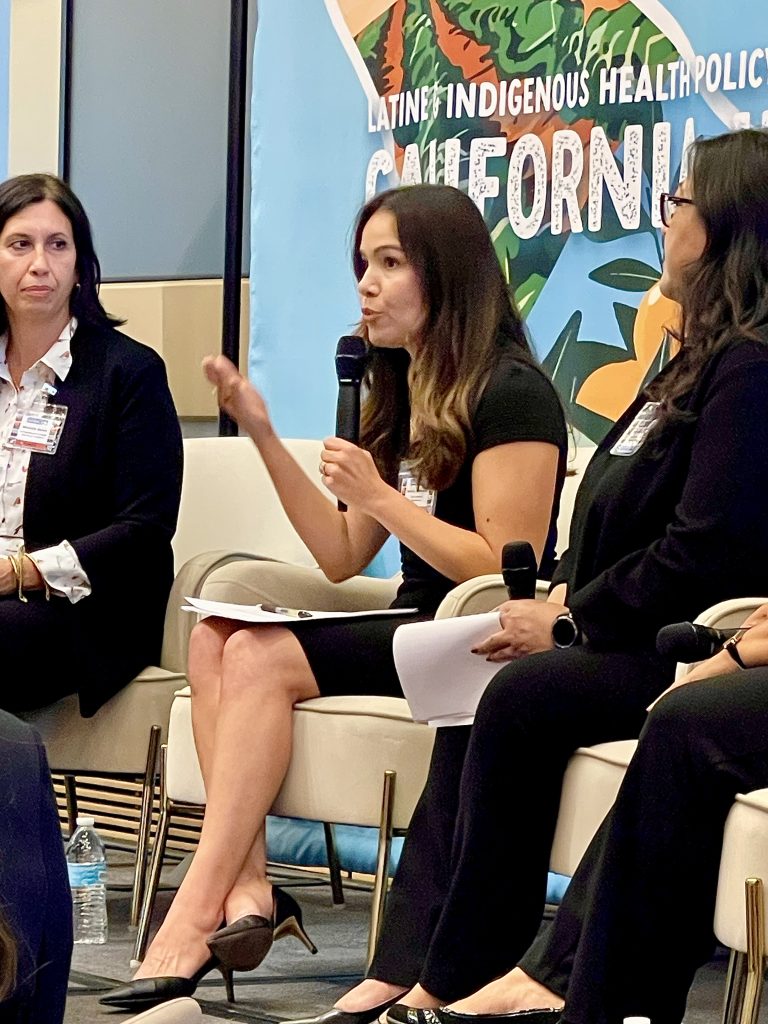
TCP President Mayra E. Alvarez spoke October 2 on a panel about the future of Medi-Cal titled, “California’s Medi-Cal Journey: The Road to Advancing and Maintaining Health Equity,” at this year’s Latino Coalition for a Healthy California’s Latine & Indigenous Health Policy Summit.
This year’s summit theme, California Unida for Health Equity, focused on the critical need for the Latine community and all Californians to unite in creating meaningful policy change, especially in an election year.

YOU’RE INVITED! Understanding California’s Birth Options Webinar: Know Your Rights
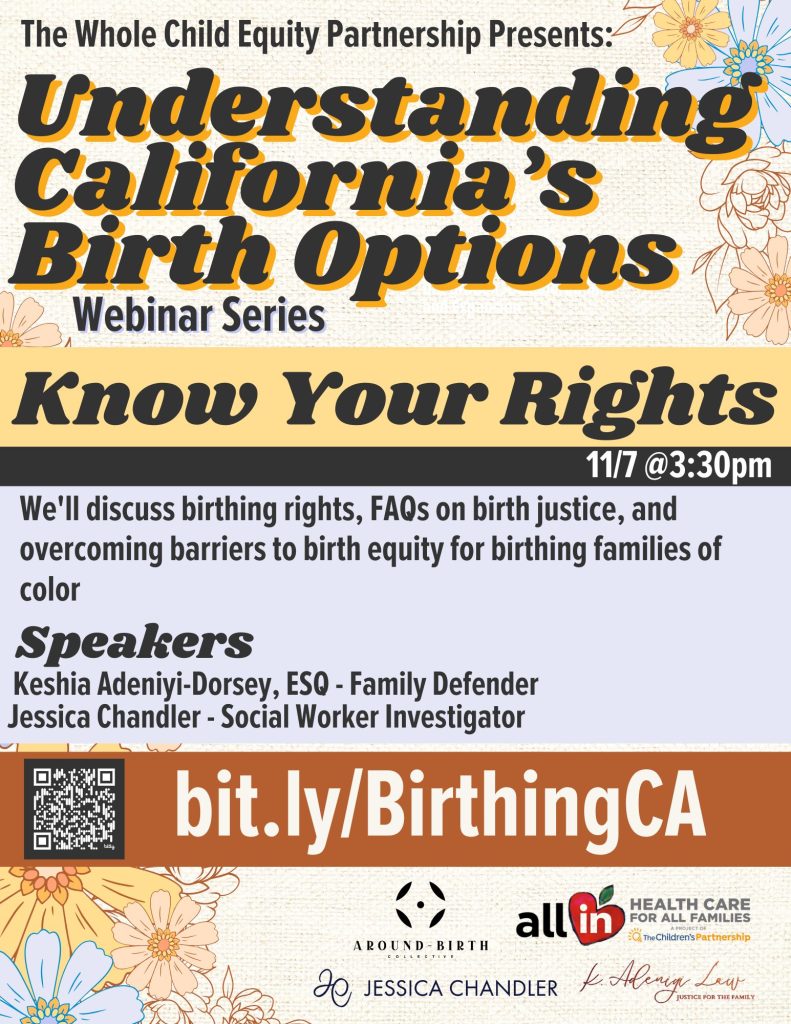
The Whole Child Equity Partnership’s Health Workgroup invites you to join the third and last webinar of the Understanding California’s Birth Options Series. Join us in a discussion about birthing rights in California with legal professionals.
California is currently experiencing a maternity care and maternal and infant mortality crisis. We will clearly communicate the importance of the Midwifery Model of Care™, share information on childbirth education options, informed decision making, and knowing your rights in a birth space setting – all in support of a safe and affirming childbirth experience for BIPOC families.
Know Your Rights
Thursday, November 7, 2024
3:30-5 p.m.
Speakers:
Keshia Adeniyi-Dorsey, ESQ – Family Defender
Jessica Chandler – Social Worker Investigator
Discussion: Birthing rights in California, frequently asked questions related to birth justice, and overcoming barriers to birth equity for birthing families of color
Don’t miss the opportunity to enter a raffle to win a FREE consultation with family defender Keshia Adeniyi-Dorsey, ESQ!
Somos Latine Families Virtual Conversation Series Returns!
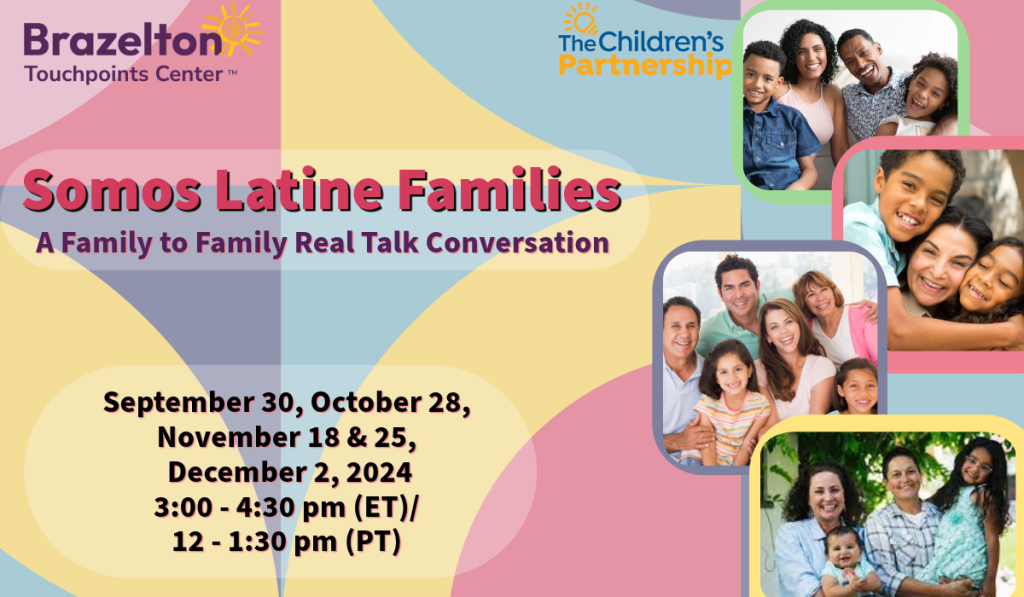
This free, 5-episode virtual conversation series offers a safe and welcoming space to hold conversations for and by Latine families. Explore what it means to be a parent as part of the Latine community, raising Latine children while navigating U.S. mainstream cultures, and connecting Latine cultural identities to physical and mental well-being.
Somos Latine Families is moderated by Eva Rivera, TCP advocacy director for early childhood development and Brazelton Touchpoints Center national facilitator.
Episode 3: Advocating for Our Future: Creating Long-Standing Safety Nets for Latine Children and Families
In the wake of the 2024 presidential election, our Latine communities have the opportunity to advocate for public policies that uplift our culture, ensure family safety and support our children. This episode will emphasize the importance of public policy, community safety and access to support systems by focusing on the immediate steps and long-term strategies to reinforce our community’s safety nets and create a secure, thriving environment for Latine children and families.
Panelists: Javier Martinez, Managing Director of National Policy, Abriendo Puertas
Episode Details:
- Date: November 18, 2024
- Time: 12-1:30 p.m. PT
- Format: Each episode is 1 hour followed by a 30-minute Q&A session with parent panelists

Peer-to-Peer Youth Mental Health Support Pilot Program Grantee Featured
Local Grass Valley, Calif., newspaper The Union featured Restorative Accountable Youth Solutions (RAYS), a peer support program in Nevada County schools that works as an alternative to punitive discipline. RAYS is available to students at Nevada Union High School, which recently received a grant from the Peer-to-Peer Youth Mental Health High School Pilot Demonstration, a joint effort between TCP and DHCS.
TCP’s Opposition to Prop 35 Highlighted by Several Outlets
TCP President Mayra E. Alvarez authored two opinion pieces outlining TCP’s concerns about Prop 35 in The San Diego Union-Tribune and The Sacramento Bee. Alvarez also did two radio interviews on Prop 35: KQED-FM and Hecho en California, which airs in Spanish on KIQI-AM and KATD-AM.
Alvarez was quoted on reasons for TCP’s opposition to Prop 35 in CalMatters, Route Fifty and Caló News, which also included a quote from a participant of TCP’s Medi-Cal focus groups. Visión Latina and Telemundo broadcast clips of Alvarez from a No on Prop 35 press conference that TCP and other organizations opposed to the proposition held on October 8.
